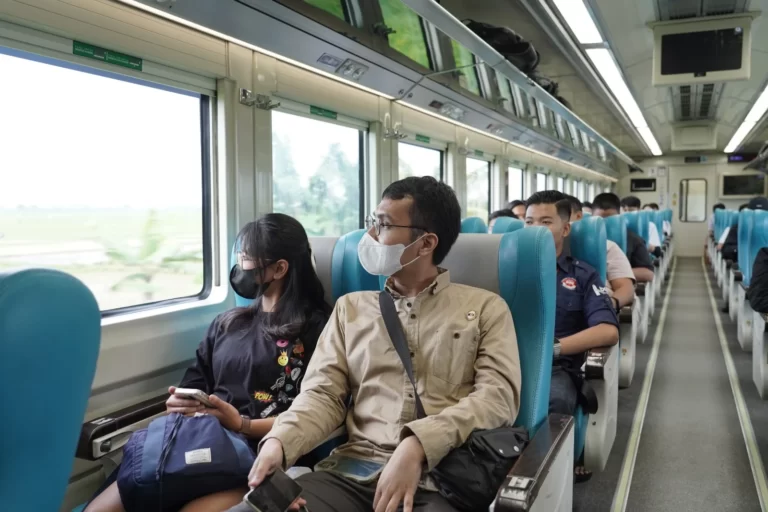Indonesia’s state-owned railway operator PT Kereta Api Indonesia (KAI) has firmly rejected a proposal from a member of parliament to introduce a designated smoking carriage on long-distance trains, emphasizing its commitment to a 100% smoke-free policy.
“KAI trains remain entirely smoke-free. We continue to prioritize passenger safety, service quality, and overall comfort.” said Anne Purba, Vice President of Public Relations at PT KAI, in a statement on Thursday (Aug 21, 2025), as reported by Kompas.
Anne added that the company values feedback and suggestions from passengers as part of ongoing service improvements.
“KAI is open to input, criticism, and feedback to enhance services, but passenger safety and comfort remain our top priorities,” she explained.
The proposal came from Nasim Khan, a member of Commission VI of the House of Representatives (DPR) from the National Awakening Party (PKB), during a hearing with KAI’s board of directors on Wednesday (Aug 20, 2025). He suggested that one carriage be converted into a café-style smoking area for long-distance routes.
“In the past, trains had such facilities. Why not bring back at least one carriage as a café where passengers can smoke and drink coffee?” Nasim said during the meeting.
He pointed out that many long-distance bus services offer smoking areas and argued it would be reasonable for trains to dedicate one carriage for the same purpose, calling it an aspiration from the people.
YLKI: Proposal “Nonsense” and Against the Law
The Indonesian Consumers Foundation (YLKI) strongly opposed the suggestion, warning that it would violate national regulations.
“The proposal to provide a smoking carriage is nonsense and clearly contradicts Law No. 17/2023 on Health and Government Regulation No. 28/2024,” said YLKI Executive Secretary Rio Priambodo in a written statement on Thursday, as reported by Bisnis.
Both the law and regulation designate all forms of public transportation as non-smoking areas. Rio stressed that introducing a smoking carriage would lower KAI’s service standards, which have already been praised for prioritizing passenger safety and comfort.
“Especially since KAI has a strict rule: if a passenger is caught smoking, they will be asked to disembark at the nearest station,” he said. “Public transport is classified as a smoke-free zone precisely to protect consumers—ensuring safety, comfort, and health.”
YLKI urged KAI to ignore the DPR proposal and uphold its current smoke-free train policy. “Providing a smoking carriage would not enhance consumer protection, but instead reduce it,” Rio added.
KAI’s Strict No-Smoking Enforcement
KAI enforces a zero-tolerance approach to smoking on board. Its official website clearly states: “Smoking or vaping of any kind—including tobacco, e-cigarettes, or vape liquid—is strictly prohibited on all train services. Passengers caught smoking will be removed at the nearest station.” The operator maintains that this policy is non-negotiable, covering every part of the train journey, from economy to executive services.
KAI and YLKI agree that public health and passenger protection must come first. With strong legal backing, KAI appears set to remain smoke-free, ensuring safer and healthier travel for millions of passengers across Indonesia.
Source: Kompas, Bisnis
Photo Credit: KAI


